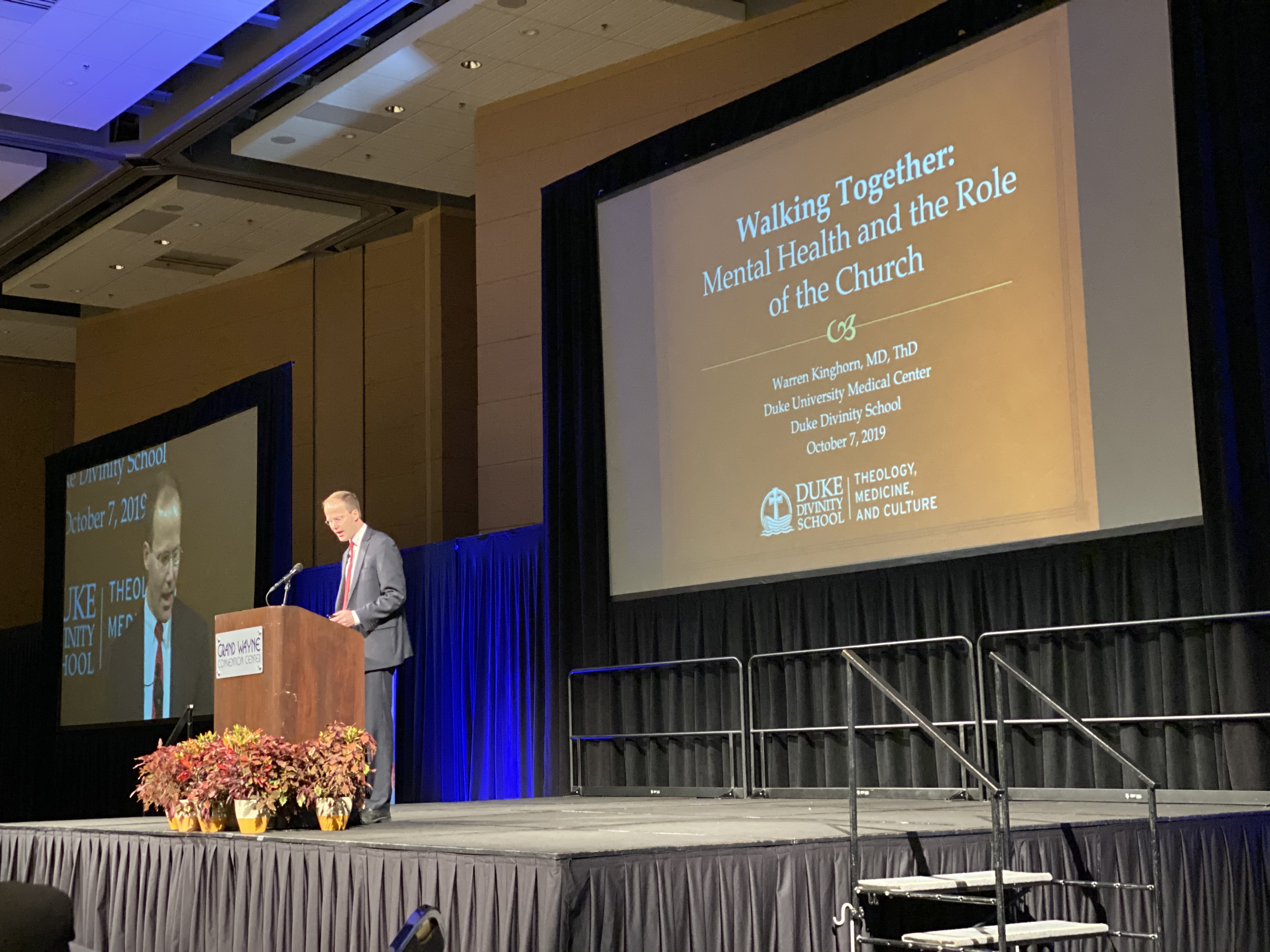Anyone who knows me knows that I care deeply about mental health. I have suffered from clinical depression for a long time now, probably over fifteen years. It is something that I have written about, spoken on, and generally beaten the drum at any given opportunity.
So it was a special treat to speak at the 2019 LookUp Conference in Fort Wayne, Indiana, this past week. Underwritten by the Lutheran Foundation of Fort Wayne, this ecumenical conference brought leaders from many different churches and walks of life together to ask the question of where the Christian Church can and should fit in as we address this ongoing epidemic here in the United States. My thanks to Marcia Haaff, Rev. Dennis Goff and their amazing staff for putting this on. I was a sectional speaker, and was able to give a Lutheran perspective on faith, mental illness, and where we as the church can fit in.
But what was really great about this conference was how much I was fed and encouraged along the way.
There were two keynote speakers, neither of whom did I know much about. The first was Dr. Warren Kinghorn, a professor of psychiatry and theology at Duke Divinity School and the Duke University Medical Center . The second was Kay Warren, wife of Pastor Rick Warren of Saddleback Church in Southern California. Neither of these people were on my radar before this event, but I have to say, they were both fantastic.

Kay Warren is not exactly the type of 21st century Christian I tend to seek out. But with the suicide of their son in 2013, things have changed for Warren and for Saddleback. I’m sure there is a lot more to the story, but her encouragement was that we as Christians care for those in need, period. And there are few people or groups more in need today than those with mental illnesses. We have something to offer as the Church which few groups today can say. We can offer hope. Hope is a rare commodity in the world of mental illness, so the fact that we can provide it puts us in a remarkable place.

For me, though, the real gem was Dr. Warren Kinghorn. Dr. Kinghorn’ s thesis as I understand it is pretty simple. One of the key factors in health and healing is the need for community. That might mean family, work, social groups, or the church, but people thrive when they belong. It doesn’t matter if we’re talking about mental health, addiction, or the myriad of other factors which make modern living complex. The more human beings are separated and isolated, the worse it is for them. We are created to be together. As we hear in Genesis 2, “It is not good for man to be alone…â€
What I find fascinating about this simple but profound observation is that we as Lutherans might have a voice on this that is often missing in modern theological thought. Most of modern Christianity today has lessened or even removed the concept of sin. But for us, sin means separation. It means separation from the God who created and redeemed us, and it means separation from each other. It should not surprise us when sin and the consequences of sin (illness) mess everything up, top to bottom.
In our preaching and teaching about sin, one of the things I have come to believe we need to reflect on more is how forgiveness is not so much an individual act, but it is one that creates connections. We are reconnected to God and to each other through the forgiveness of sins. This creates Koinonia, fellowship, and it is in this fellowship with God and each other that we can heal, and even thrive as human beings.
So how do we as the Christian Church do this? I’m just starting to think through all of the implications, but here are a few thoughts I’m knocking around. I hope you will do the same with me.
- We as the Church need to see forgiveness and our reconnection with one another as two sides of the same coin. This does not denigrate or lesson the role of forgiveness. What it does is put the therefore behind what happens through the Gospel.
- When we see our work as the Church in purely academic or pragmatic categories, we are missing out on the very thing that we have to offer for the life of the world. It is altogether too easy today to think in terms of education, or entrepreneurship, or other horizontal categories, and think that’s all we are and all we have as God’s people. May it never be so among us!
- In reaching out to the people on the margins, we are not going down some weird road of social justice, we are instead seeing that we need them as much as they need us. We are one body in Christ. Caring for one another in our mutual weaknesses is exactly what makes us who we are as God’s people.
- By trying to understand and find ways of partnering with other entities or groups on mental illness, we demonstrate to the world that we are here in their midst, we are here to stay, and that God is here to actually care for people, not take things from people. This is hard for us as Lutherans, because our understanding of the distinctions between the church and state, for example, can easily convince us that we shouldn’t try to work together. What do we have to fear?
These are just a few of my initial thoughts on the matter. I want to thank Dr. Kinghorn for his ongoing work in this area. I hope that you get the opportunity to have dinner with a few more Lutherans. I think we might need each other!






